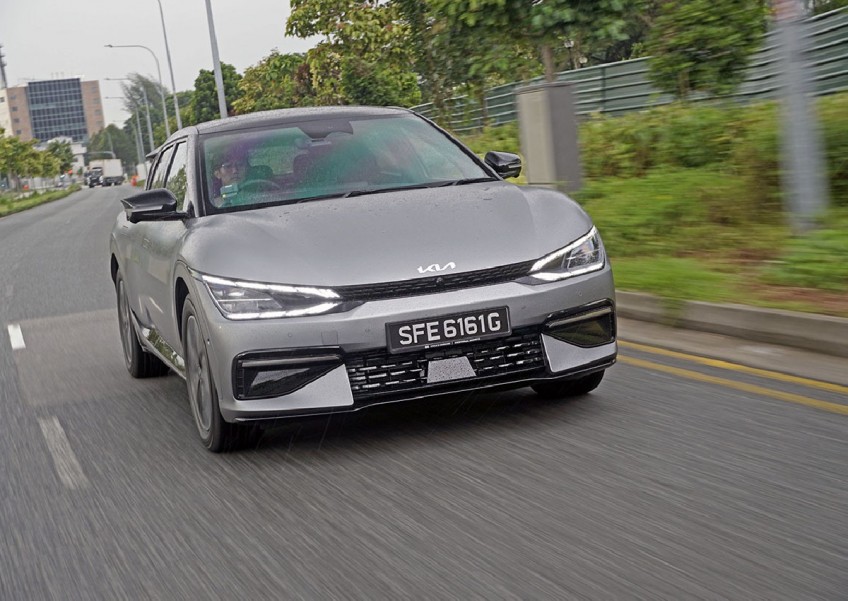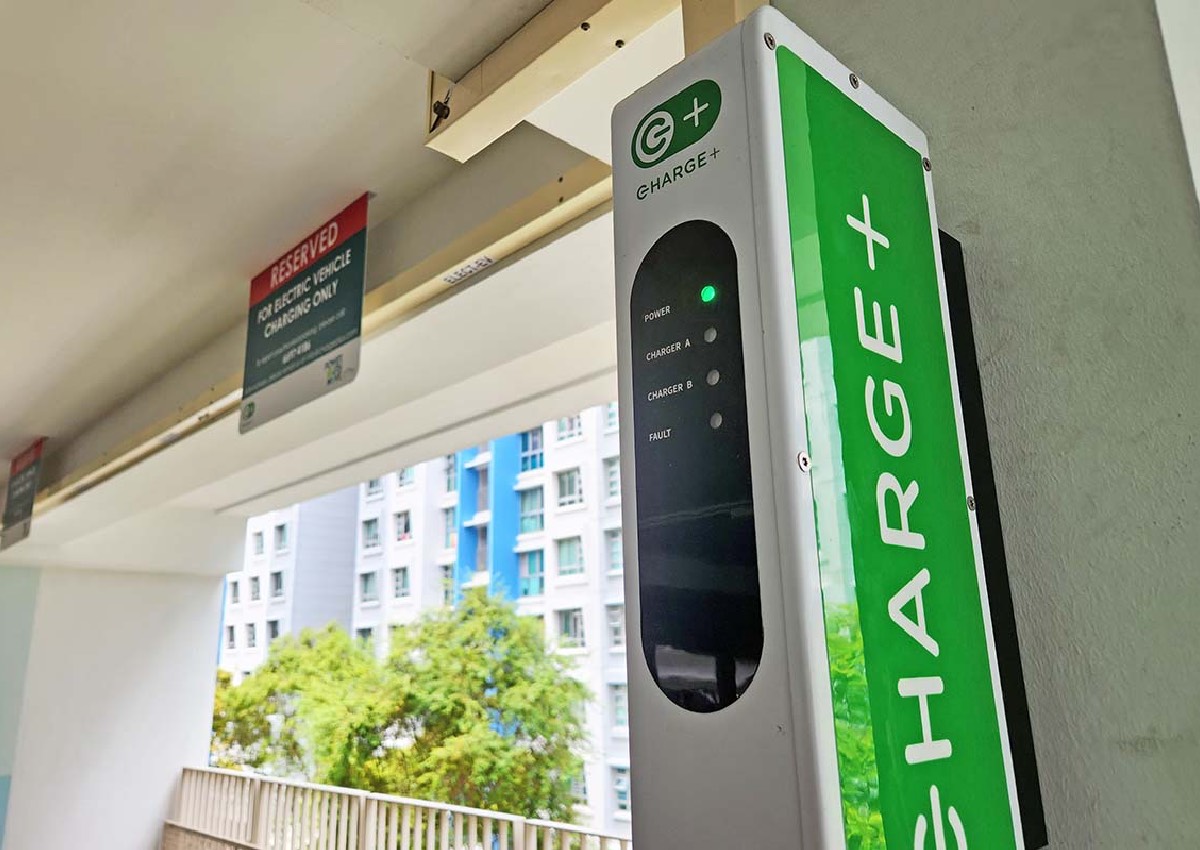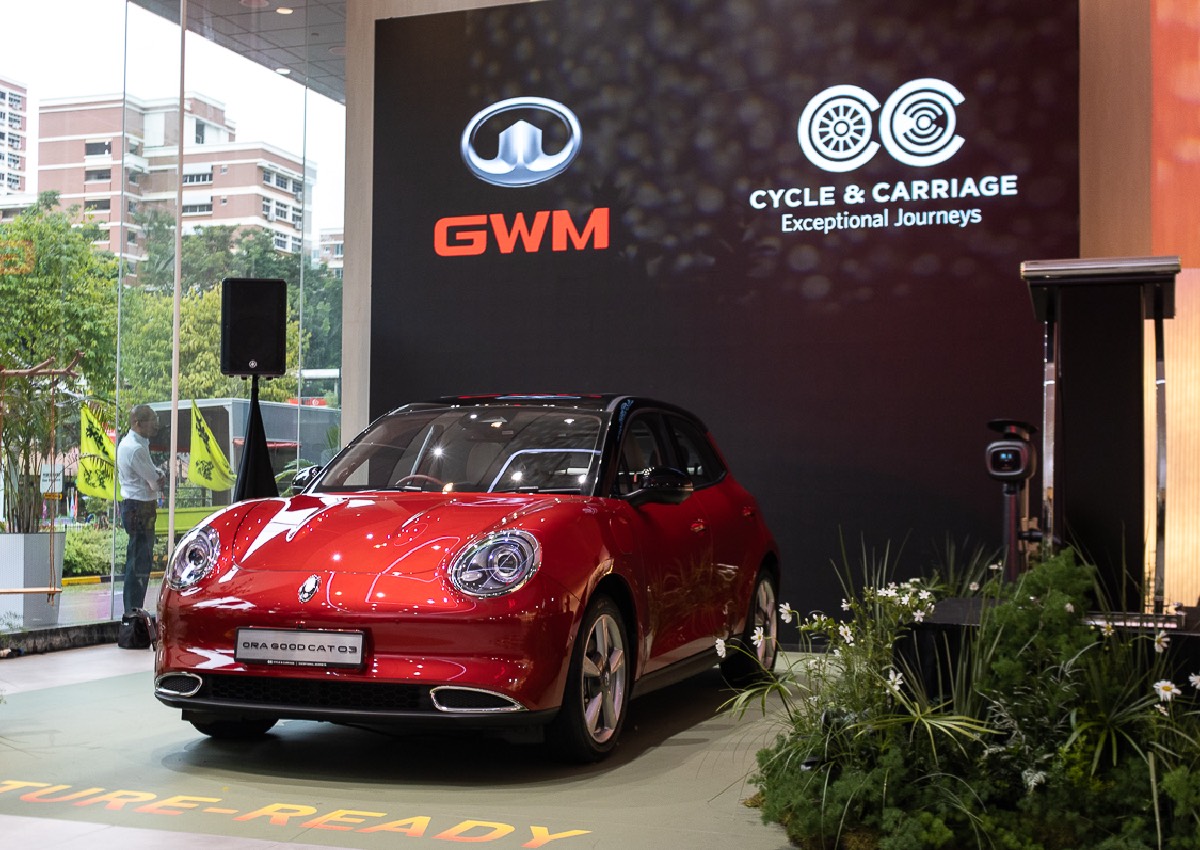Vehicle owners in Singapore are ready to go electric, study reveals


Even as many car owners hold out in the face of sky-high COE prices, it's a battle that must have an inevitable end as older cars hit the 10-year mark and need to either have their COEs renewed, or the car traded-in. Cycle & Carriage Singapore, which distributes Kia, Maxus, Mitsubishi, Ora, Citroen, and Mercedes-Benz cars here, has released the results of its independently-conducted survey that shows what drivers in Singapore are planning to do in the near future.
It revealed that 67 per cent of ICE car owners have plans to sell or trade-in their cars by 2025, and about 50 per cent of them are seriously considering trading up for an electric vehicle or at least a petrol-electric hybrid vehicle.
Going further into detail, 81 per cent of the respondents who are likely to purchase an EV are between 20 to 49 years old, with nearly 40 per cent of them earning a monthly personal income of $9,000 and above. Fifty-eight per cent from this pool are female, which does kind of dispel the idea that early adopters of automotive products are usually male.
People who have more than one car in the household were also found to be more likely to want to buy an EV as an alternate form of vehicular transport, perhaps stemming fro the confidence of having an ICE car to fall back upon for familiar driving.

The availability of public charging points tops the considerations of going electric, with 46 per cent of respondents classing it as the main factor, with battery durability and vehicle safety following closely behind.
Commercial charge point operators in Singapore are ramping up installation plans all over the island. With the country's aim to have 60,000 individual public charging sockets by 2030 already in motion this may quickly tip the scales within the next five years.
Electric vehicles are already steadily making inroads in Singapore. Despite lower new car sales across the board, EVs made up around 13 per cent of new cars registered in the first five months of 2023 here.
It's a one per cent increase over the same period in 2022, though the second half of the year may see an increase as buyers who can afford to buy, but are still on the fence get nudged by the winding down of the EV Early Adoption Initiative rebates. It is set to expire at the end of 2023 and unless something new is announced, will mean that EVs will become more expensive in 2024.

It's also important to remember that the government has a rolling plan in place to phase out internal combustion engine (ICE) powered vehicles by 2040. It does not mean that petrol and diesel-powered cars will be banned by then, but rather, new ICE cars will not be allowed for sale in Singapore from 2030.
With the 10-year COE system still in place, ICE powered cars will theoretically have lived out their lives by 2040 here and most will be deregistered or scrapped. We should expect petrol taxes to climb exponentially by then as well as the authorities will no doubt aim to make it extremely restrictive to operate an ICE powered car in Singapore from 2040.

Yet for now, in a space where many people operate vehicles as simply a transport appliance, knowledge about EVs is still lacking. Half of the respondents in the survey only know that EVs are powered by batteries and nothing more, seven per cent have no idea of how EVs operate at all, and just 11 per cent have actually driven one.
If you are one of those that haven't checked out EVs in detail, or seen an educational forum like CarBuyer Singapore's annual EV Weekend, you might be surprised to know that they are actually much simpler cars than traditional ICE vehicles.
For starters, there are no hot, complicated parts like exhaust pipes, radiator cooling systems, turbochargers, multi-speed gearboxes, and clutches. An EV is essentially just a big battery pack connected to an electric motor, like what you might get if you blow a radio-controlled model car up to a human-sized vehicle.
With the amount of digital connected technology cars are now packing, EVs are almost like an electrical appliance rather than what you might expect from a traditional ICE car.

Interestingly, car sharing operators like BlueSG have been making EVs available to hirers for a couple of years now, so there's actually a higher percentage of non-owners having driven an EV than drivers who have the same car that they will drive until time to replace it.
Still, with the survey showing that around 50 per cent have little awareness of how EVs operate it's clear that public education is still lacking.
Conducted by AntzWorkz Consultants, the online survey sampled an age group from their 20s to 60s, and was conducted totally blind with the participants not aware of any brand association.

Cycle & Carriage as an automotive sales group however, is ramping up its EV retail arm, with the newly launched Maxus Mifa 9 and Ora Good Cat 3 bookending the price and size spectrum in its showrooms. There's also the Kia EV6 and Kia Niro EV, along with the Mercedes-EQ range over at the group's Mercedes-Benz showroom. So however quickly the dial swings, expect some acrobatics as retailers attempt to stay a step ahead on the automotive retail business here.
ALSO READ: EV charging services provider Charge+ aims to have 16,000 charging points in Singapore by 2030